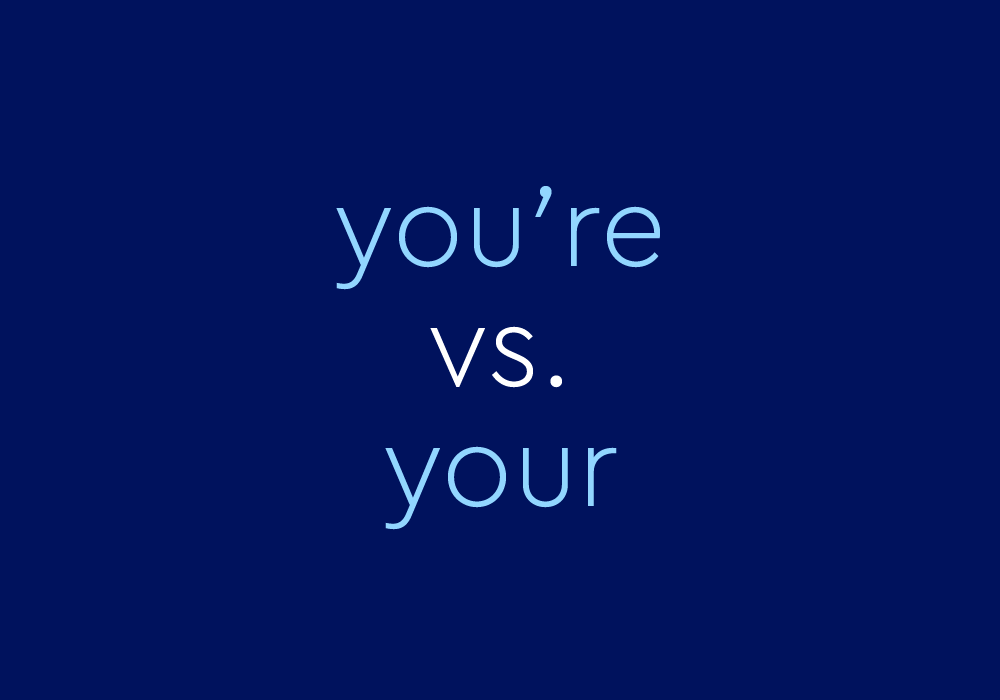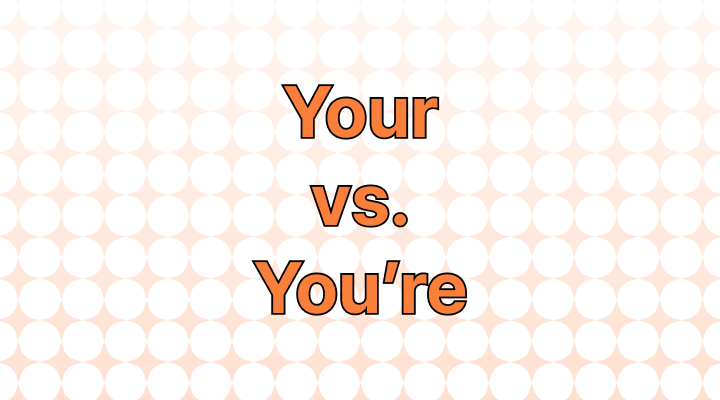Your refers to something that belongs to or is associated with the person or people. You're is used to describe a state of being or action of the engaged person.
The English language is replete with homophones—words that sound the same but have different meanings and functions. Among these, your and you're are often mistaken due to their phonetic resemblance. Yet, understanding their distinctions is vital for clear communication and proper writing.
How are your and you're different?
The primary distinction between these two lies in their meanings and usage. Your is a possessive pronoun, indicating ownership or possession by the person or group being addressed.
Example sentence:
- Is this your book?
You're is a contraction of "you are," combining the subject pronoun "you" with the verb "are."
Example sentence:
- You're going to love this movie.
Both "your" and "you're" have roots tracing back to Middle English and Old English. Over time, they evolved to their current forms and meanings, adding to the depth and complexity of the English language.
More example sentences:
- Is this your first time visiting this museum?
- I hope you're enjoying your vacation at the beach.
- Can you please pass me your phone number?
- You're the only one who can solve this puzzle.
- Did you check if your keys are on the table?
- I think you're going to do great in the upcoming presentation.
- Remember to pick up your groceries on your way home.
- You're always welcome to join us for dinner.
- Make sure to double-check your flight details before traveling.
- You're the best friend I could ever ask for.
Practice Questions
- I hope you're/your having a wonderful day.
- Is this your/you're backpack or mine?
- Remember to take your/you're umbrella; it might rain later.
- You're/your going to love the new restaurant in town.
- Did you're/your sister call you last night?
- Can I borrow your/you're pen for a moment?
- Make sure you're/your prepared for the exam tomorrow.
- Don't forget to lock your/you're car before leaving.
- Is that your/you're dog playing in the park?
- You're/your always welcome at our house for dinner.
If you still are unsure about which to use, try out Engram where you can submit your English sentences to get immediate feedback and suggestions based on how native English speakers write.

Answer Key:
- you're
- your
- your
- you're
- your
- your
- you're
- your
- your
- you're
Reference:














